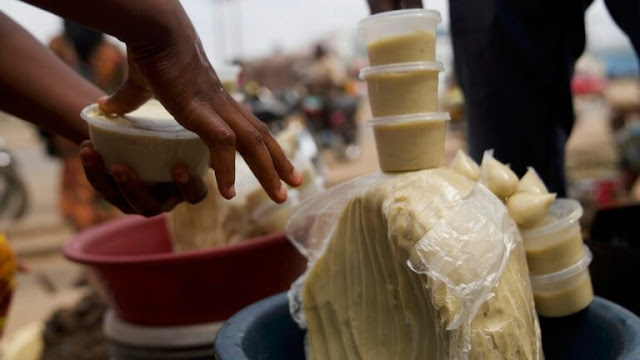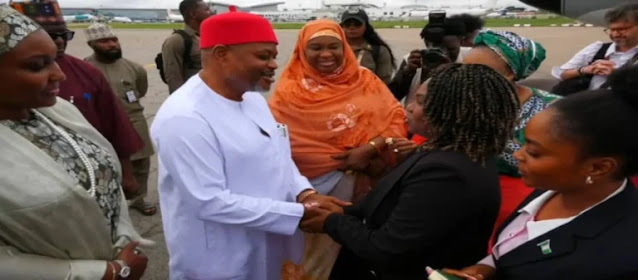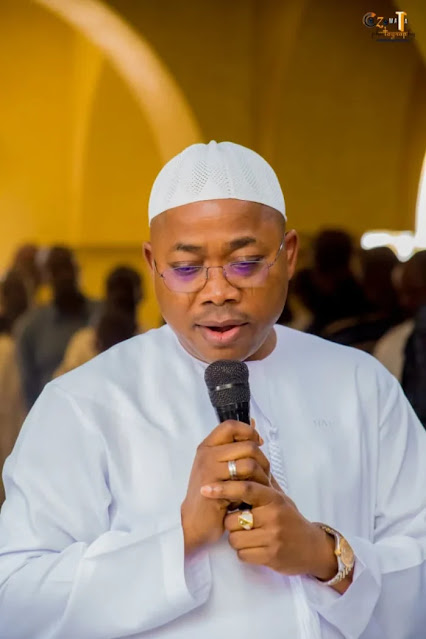In a significant step toward solidifying its position as a global sporting powerhouse, India has formally submitted a bid to host the 2030 Commonwealth Games in Ahmedabad, the Indian Olympic Association (IOA) announced. The bid, presented by an IOA delegation at the Commonwealth Sport headquarters in London on Friday, August 29, 2025, is not only a strategic move to secure the prestigious multi-sport event but also a cornerstone in India’s ambitious plan to host the 2036 Olympic Games. This bid underscores India’s growing aspirations to elevate its status in international sports, showcasing its organizational capabilities, infrastructure, and commitment to fostering global sporting unity.
A Vision Beyond the Commonwealth Games
The submission of the bid is a landmark moment for India, reflecting its broader vision to transform Ahmedabad into a global hub for sports and to lay the groundwork for a future Olympic bid. Harpal Singh, a member of the IOA Executive Council and the sports committee of Commonwealth Sport, emphasized the significance of the bid during a telephone call from London. “This is not just a bid to stage a sporting event—it is our commitment to the Commonwealth family to deliver Games that are athlete-centered, inclusive, sustainable, and future-facing,” Singh stated. His words highlight India’s intent to redefine the Commonwealth Games as a platform that not only celebrates athletic excellence but also embraces innovation and inclusivity.
Singh further elaborated that India’s vision for the 2030 Commonwealth Games extends beyond the event itself. The country aims to use the Games as a springboard to demonstrate its readiness to host larger global events, such as the Olympics. “Our vision is to use this milestone not only to honor the past but to set the stage for the future—ensuring the Games remain relevant, impactful, and viable for the next century,” he added. This forward-thinking approach reflects India’s determination to align the Commonwealth Games with modern values, including sustainability, technological advancement, and accessibility for all athletes and spectators.
Strategic Support from the Indian Government
The bid has received robust backing from India’s federal government, which on Wednesday, August 27, 2025, approved the signing of the Host Collaboration Agreement (HCA) along with the necessary guarantees from relevant ministries. This governmental support is a critical component of the bid, as it assures the Commonwealth Sport organization of India’s financial and logistical commitment to hosting the Games. The HCA outlines the responsibilities and obligations of the host nation, including infrastructure development, security arrangements, and financial assurances, all of which are essential for a successful event.
The government’s endorsement is also a testament to Prime Minister Narendra Modi’s vision of positioning India as a global leader in sports. Modi has been a vocal advocate for bringing major international sporting events to India, with the 2036 Olympics being a key priority. Hosting the Commonwealth Games in 2030 is seen as a critical step in building India’s credentials and demonstrating its capacity to manage large-scale, multi-sport events. “Successfully hosting the Commonwealth Games will demonstrate our nation’s capability, strengthen our international credibility, and lay the foundation for the Olympic journey ahead,” Singh noted, echoing the prime minister’s aspirations.
Ahmedabad, the proposed host city, is a rapidly developing urban center with a rich cultural heritage and modern infrastructure. The city’s selection reflects India’s confidence in its ability to deliver a world-class event. Ahmedabad has already hosted significant sporting events, such as cricket matches at the iconic Narendra Modi Stadium, one of the largest stadiums in the world. The city’s existing infrastructure, coupled with planned upgrades for the Commonwealth Games, positions it as a strong candidate to host an event of this magnitude.
India’s Sporting Ambitions and the Olympic Dream
India’s bid for the 2030 Commonwealth Games is intricately linked to its long-term goal of hosting the 2036 Olympic Games. The Olympics represent the pinnacle of international sport, and hosting such an event would mark a historic achievement for India, which has never hosted the Summer or Winter Olympics. The Commonwealth Games, with its diverse range of sports and participation from 54 member countries, offers a valuable opportunity for India to showcase its organizational capabilities and build international confidence in its ability to manage a global mega-event.
Harpal Singh described the bid as a “proud moment” for India, emphasizing its alignment with Modi’s vision. “This bid takes us closer to Prime Minister Narendra Modi’s vision of bringing the Olympic Games 2036 to India,” he said. The Commonwealth Games, while smaller in scale than the Olympics, involve complex logistics, including the coordination of thousands of athletes, officials, and spectators, as well as the management of multiple venues and events. Successfully hosting the 2030 Games would provide India with invaluable experience and credibility, paving the way for a competitive Olympic bid.
India’s aspirations to host the Olympics are not new. The country has made significant strides in improving its sporting infrastructure and performance in recent years. The success of Indian athletes at the Tokyo 2020 and Paris 2024 Olympics, where India achieved its best-ever medal hauls, has bolstered national confidence and highlighted the potential for further growth. By hosting the Commonwealth Games, India aims to build on this momentum, showcasing its ability to create a world-class sporting environment while fostering grassroots development and inspiring future generations of athletes.
The Competitive Landscape: Canada and Nigeria in the Race
India is not alone in its pursuit of the 2030 Commonwealth Games. Canada and Nigeria have also submitted bids, setting the stage for a competitive selection process. The host city for the 2030 Games will be announced at the Commonwealth Sport General Assembly in Glasgow in November 2025. Each country brings its own strengths to the table, with Canada boasting a strong track record of hosting international sporting events, including the 2010 Winter Olympics in Vancouver and the 2015 Pan Am Games in Toronto. Nigeria, meanwhile, represents an emerging force in African sport, with a growing interest in hosting major events to boost its global profile.
The competition underscores the challenges facing the Commonwealth Games, which have struggled to attract hosts in recent years due to financial and logistical concerns. The 2026 Games, originally awarded to the Australian state of Victoria, were relocated to Glasgow after Victoria withdrew citing escalating costs. Similarly, the 2022 Games were moved to Birmingham, England, after Durban, South Africa, pulled out due to financial difficulties. These withdrawals highlight the economic pressures associated with hosting large-scale sporting events, as well as the need for innovative approaches to ensure their sustainability.
India’s bid stands out for its emphasis on sustainability and inclusivity, aligning with the Commonwealth Sport organization’s priorities for the future of the Games. By proposing a “future-facing” event, India aims to address concerns about cost overruns and environmental impact, which have plagued previous editions. The IOA has outlined plans to leverage existing infrastructure in Ahmedabad while investing in sustainable upgrades, such as eco-friendly venues and efficient transportation systems. These commitments could give India an edge in the selection process, particularly as the Commonwealth Sport organization seeks to ensure the long-term viability of the Games.
Challenges Facing the Commonwealth Games
The Commonwealth Games, often referred to as the “Friendly Games,” bring together athletes from 54 member countries, primarily former British colonies, to compete in a diverse range of sports. While the event has a rich history dating back to 1930, it has faced significant challenges in recent years. The high costs of hosting, coupled with the logistical complexities of managing a multi-sport event, have deterred potential hosts. The withdrawals of Victoria and Durban are indicative of broader trends, as governments and organizing committees grapple with balancing the economic benefits of hosting against the financial risks.
The 2026 Games in Glasgow, for example, will feature a pared-down format with fewer sports and events to reduce costs. This decision reflects a broader effort to make the Commonwealth Games more accessible to potential hosts while maintaining their appeal to athletes and spectators. India’s bid for 2030 comes at a critical juncture, as the Commonwealth Sport organization seeks to reimagine the Games for a new era. By emphasizing sustainability, inclusivity, and athlete-centered planning, India is positioning itself as a leader in this transformation.
The challenges facing the Commonwealth Games are not unique to the event but reflect broader trends in global sport. The rising costs of hosting mega-events, coupled with growing scrutiny of their social and environmental impacts, have prompted calls for reform. India’s bid, with its focus on long-term viability and global relevance, aligns with these calls and could serve as a model for future hosts.
Ahmedabad: A City Ready to Shine
Ahmedabad’s selection as the proposed host city is a strategic choice that leverages the city’s existing infrastructure and cultural significance. Home to the Narendra Modi Stadium, which has hosted international cricket matches and other large-scale events, Ahmedabad has the capacity to accommodate the demands of the Commonwealth Games. The city’s modern transportation networks, including its metro system, and its proximity to other urban centers in Gujarat make it an ideal location for a multi-sport event.
In addition to its infrastructure, Ahmedabad offers a vibrant cultural backdrop that could enhance the Games’ appeal. The city’s rich history, coupled with its reputation as a hub for commerce and innovation, positions it as a dynamic host capable of delivering a memorable experience for athletes and visitors alike. The IOA’s vision for an inclusive and sustainable Games aligns with Ahmedabad’s identity as a forward-looking city committed to progress and development.
The Road Ahead: Opportunities and Challenges
India’s bid for the 2030 Commonwealth Games represents a bold step toward realizing its sporting ambitions, but it also comes with significant challenges. Hosting a multi-sport event requires meticulous planning, substantial financial investment, and robust coordination across multiple stakeholders. The IOA and the Indian government will need to ensure that infrastructure upgrades are completed on time, security arrangements are airtight, and the event is accessible to all participants, including athletes with disabilities and spectators from diverse backgrounds.
The competitive nature of the bidding process, with Canada and Nigeria also vying for the 2030 Games, adds another layer of complexity. India will need to present a compelling case at the Commonwealth Sport General Assembly in Glasgow, highlighting its vision, capabilities, and commitment to delivering a transformative event. The decision in November 2025 will be a pivotal moment, determining whether India can take the next step toward its Olympic dreams.
Beyond the logistical and financial challenges, India must also navigate the broader geopolitical and social context of hosting a major international event. The Commonwealth Games bring together nations with diverse histories and perspectives, and India’s role as a host will require diplomacy and sensitivity to ensure a harmonious and inclusive event. By embracing the values of the Commonwealth—cooperation, diversity, and mutual respect—India can position itself as a leader in global sport.
A Legacy for the Future
If successful, India’s hosting of the 2030 Commonwealth Games could have far-reaching implications for the country’s sporting landscape. The event would provide a platform to showcase India’s organizational capabilities, inspire a new generation of athletes, and boost tourism and economic activity in Ahmedabad and beyond. It would also strengthen India’s case for hosting the 2036 Olympics, demonstrating to the International Olympic Committee (IOC) that the country is ready to take on the world’s most prestigious sporting event.
The bid is a testament to India’s growing confidence on the global stage and its determination to play a leading role in international sport. By prioritizing sustainability, inclusivity, and innovation, India is not only aiming to host a successful Commonwealth Games but also to redefine the event for the 21st century. As Harpal Singh noted, the bid is about more than just a sporting event—it is about honoring the past while shaping the future.
In conclusion, India’s bid to host the 2030 Commonwealth Games in Ahmedabad represents a bold and visionary step toward cementing its status as a global sporting destination. With strong governmental support, a clear focus on sustainability and inclusivity, and a strategic eye on the 2036 Olympics, India is poised to make a compelling case to the Commonwealth Sport organization. As the world awaits the decision in November 2025, India’s bid stands as a symbol of ambition, resilience, and the transformative power of sport.






